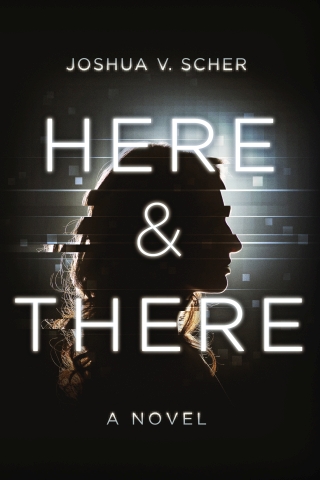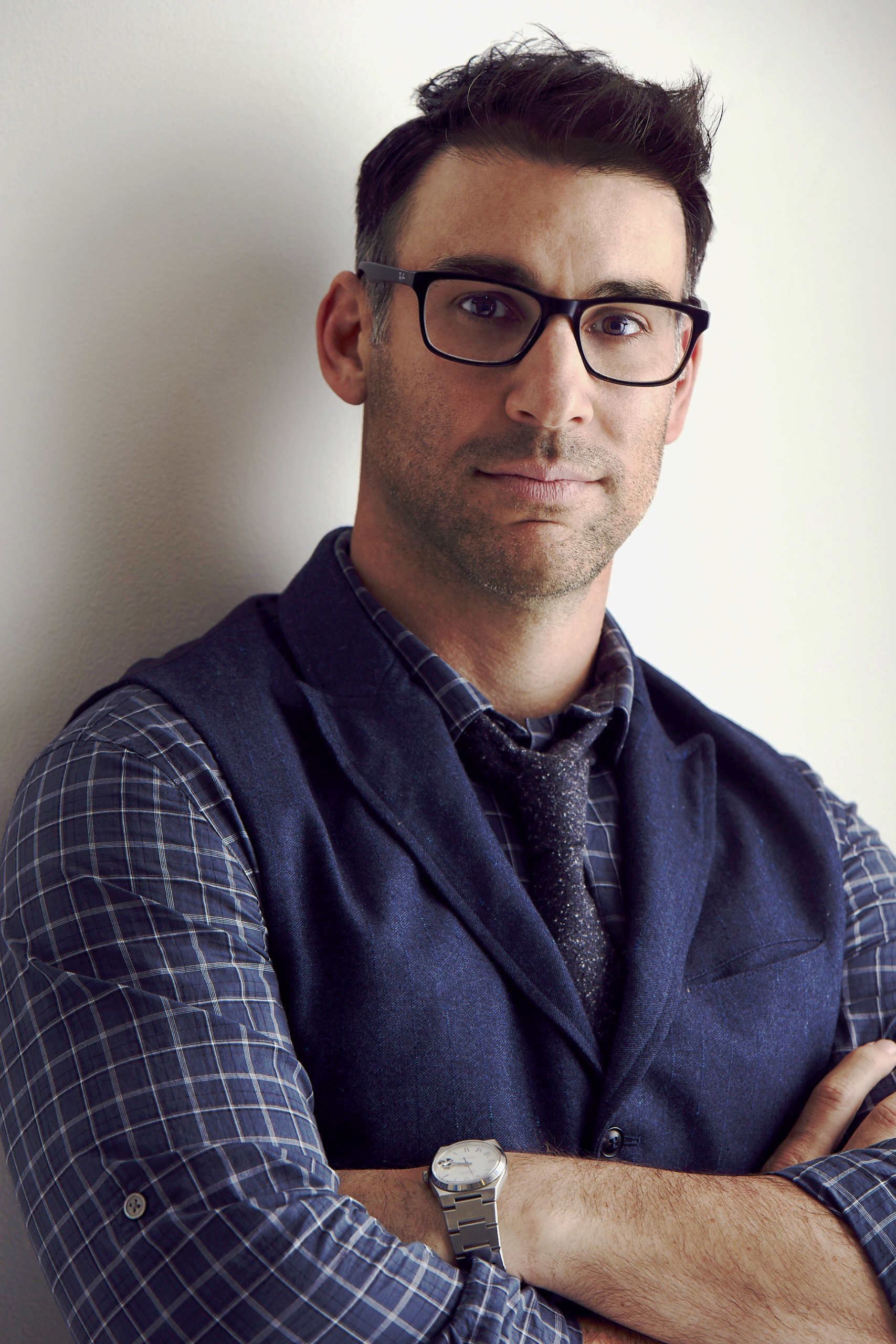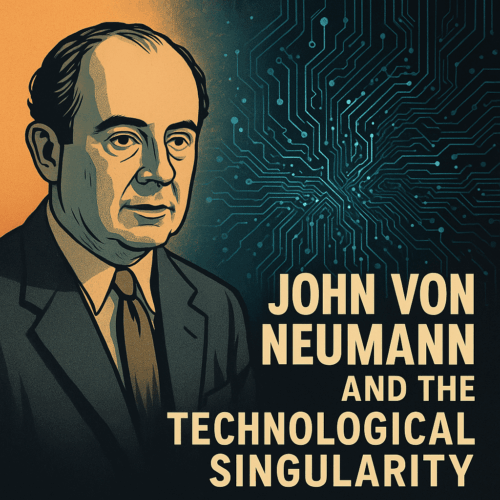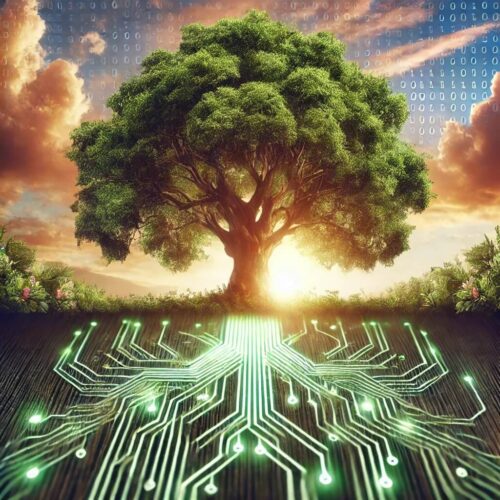I Sync, Therefore I Am… Always
Joshua Scher / Op Ed
Posted on: June 20, 2016 / Last Modified: June 20, 2016
 “What is death? I’ll tell you. He’s the world’s most successful thief who has stolen our loved ones and our time for as long as we’ve been around.”
“What is death? I’ll tell you. He’s the world’s most successful thief who has stolen our loved ones and our time for as long as we’ve been around.”
“Death gives life meaning.”
“Nonsense,” Curzwell scoffs. “That’s useless orthodoxy based on a lack of options and perspective. It’s what we do with life that gives it meaning. Art, music, relationships. What we create.”
“You want to bring immortality to market.”
Curzwell winks at Reidier. “The thing about immortality is that you can never affirm you’ve achieved it.”
“It’s inhuman.”
“Science is inhuman.”
— Here and There by Joshua Scher
In considering the successful Trinity test in New Mexico on July 16, 1945, Oppenheimer later remarked “We knew the world would not be the same.” Over 70 years later, we are approaching another paradigm shift of tectonic proportions, the singularity. Unlike the advent of the nuclear age, which forever altered the world, in this imminent evolution, it is we who will never be the same.
The technological singularity is a bit of an elusive term. On this website alone, there 17 different definitions of it. Essentially, the concept describes how our technological progress is becoming more and more rapid, accelerating towards an intelligence explosion, some volatile tipping point after which our inventions will not only become independent from us, they will surpass us. It could manifest in the form of anything from a superintelligent AI to a more transhumanist incarnation of uploaded and downloaded consciousness to editing our genetic code and achieving amortality. Regardless of the mode(s) that the singularity ultimately manifests through, it will unquestionably and irrevocably change the way in which we experience the world and ourselves.
At the core of this evolution lies a very fundamental drive: the fear of death and our yearning to avoid it. Ever since we mastered fire and invented the wheel, humanity has been at war with nature: clothing, agriculture, architecture, medicine, space travel! All of these accomplishments have been a revolt against our natural limitations. And now, we’re poised to overcome our oldest problem.
After this point, however, we will no longer be who we were.
In truth, though, there’s more to this evolutionary stuff than simply defying death. Reality will be rife with ramifications. Here’s the thing about science. It’s hard. Like, really hard. It takes a lot of work and a hyper-focus. Much like a dog with a Kong full of frozen peanut butter, scientists can find themselves turning their work over and over, consumed by problem solving. In this state, it’s almost impossible to take a step back out of the present tense and consider the future tension. It’s why Oppenheimer didn’t have his horrible revelation until after the Trinity test.
In the coming years, it’s completely feasible that, together, genetic engineers pruning strands of DNA to extend life expectancy and nanotechnicians building bionic immune system could offer the world amortality. No age deterioration. No infections. No disease. We could live forever, barring some fatal trauma. (An anvil falling on an individual from a great height would still accordion him/her into oblivion.) However, no one would ever again die from “natural causes”. But what would that mean for us in the everyday?
In an amortal culture, marriage would have to evolve. ‘Til death do we part would no longer apply to Matrimony 2.0. Marriage would have to be redefined with term limits, renewable every decade or century or whatever. Love itself would come into question. It’s one thing to pledge your undying devotion when you know eventually you yourself will die. It’s a whole other reality to make that commitment when staring down the barrel of eternity. If you think it’s hard to keep the spark of romance burning bright now, just wait a millennium.
Perhaps instead, we will arrive at a future in which we have figured out (probably with the assistance of AI) how to digitize our consciousness. We can back-up our selves and download our “souls” into newer, younger vessels again and again and again, ad infinitum. Supercool, yes. But no more death would absolutely shake up our social structures.
In this world, murder would no longer be a capital crime, but an act of vandalism. A mere misdemeanor. This reduction in consequences could actually make us more savage. We could let our Ids run wild, stampeding over whomever pisses us off and paying the wergild cost as needed. Get cut off by a driver only to discover the fucker’s texting, ram ‘em. A cantankerous airline passenger slams the seat back too far, choke ‘em. A surly, moustached barista corrects your order for a large coffee as a “vente”, stab ‘em… twice. Maybe three times. And scalp the moustache.
Or maybe suicide would become all the rage as we take up “death” tourism: parachute not included. How will our pysches be altered by experiencing death AND resurrection?! What happens when the single most defining characteristic of life is removed? When we let go of this primordial fear…
In this digitized culture, hard drive failure at a server farm would become manslaughter. Identity theft would take on a whole new level. If I did commit some heinous crime, but died in the process, could my resurrected self be held accountable? Could the state prosecute the new me?
That said, if grandma develops a smidge of dementia, forget the nursing home, take her to the Genius Bar. Get into a car accident (see above texting reference), screw the EMTs, call the Geek Squad! That is if you can afford it.
In this augmented society, would the stratification of wealth become more rigid? Those with the means to afford longevity technology would be able to aggregate more and more wealth simply by living longer (just with compound interest alone), while continuously purchasing greater and greater enhancements that provide an increased edge in the marketplace. Eventually the biopolitical horizon would be divided between the homo sapiens and the homo ampliens.
And we haven’t even begun to consider the psychological ramifications of digitally uploading our selves. We could presumably maintain our sentience online. If so, it’s not that great a leap to then imagine a constructed digital landscape that has, at the very least, a landscape the likes of Warcraft. In this virtual world, our minds would be separated from our most fundamental stimulants: pain or pleasure. Nowadays, when binge gamers plug in, they can go for hours without registering hunger or bladder pressure, but this would take that to a whole new level.
How would our consciousness change in a realm devoid of physical feedback and limitations? Realities would bleed together as we accept a sort of living dream state of existence. Would there be a trauma then in the act of downloading back into the physical world? A rift in our psyches at being confined within the boundaries of the body once again. Would certain individuals eventually refuse to download and simply stay in the virtual cloud? An entire population of actual ghosts in the machines…
The singularity will take us out onto the next branch of evolution. Our existence will be fundamentally different, in a paradigm where the new philosophy will be, I sync therefore I am… always. Unlike Oppenheimer, our concern moving forward is not about becoming the Destroyer of Worlds, but rather, the Destroyer of Death.
About the Author:
 Joshua Scher is a playwright, screenwriter, and novelist. He holds a BA with Honors in Creative Writing from Brown University and an MFA in playwriting from Yale University. His play, THE FOOTAGE, has been produced from NYC to Australia and its cinematic adaptation was developed by Pressman Film. Scher’s television pilot, JiGsAw, was developed by Danny Glover with Louveture Films and his film, I’M OK, starring Dot-Marie Jones, is in post-production, set for a 2016 festival run. Here & There
Joshua Scher is a playwright, screenwriter, and novelist. He holds a BA with Honors in Creative Writing from Brown University and an MFA in playwriting from Yale University. His play, THE FOOTAGE, has been produced from NYC to Australia and its cinematic adaptation was developed by Pressman Film. Scher’s television pilot, JiGsAw, was developed by Danny Glover with Louveture Films and his film, I’M OK, starring Dot-Marie Jones, is in post-production, set for a 2016 festival run. Here & There is his first novel.








